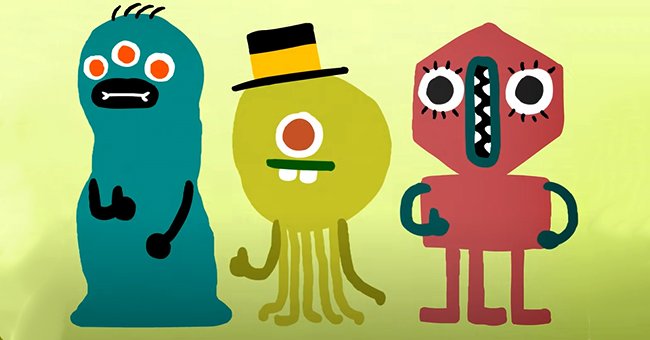
Three Gods Riddle: Appease the 3 Alien Overlords of an Ancient Planet to Get Home Safely
A team has to use their wits and quick thinking to think of how best to escape from an ancient planet after crash landing on the planet and encouraging its menacing overlords.
A person and his team crash-landed on a strange ancient planet. The only way that they can survive is to appease the three alien overlords ruling the entire planet. The overlords are Tee, Eff, and Arr.
Unfortunately for the team, they cannot differentiate the overlords, making it harder to decipher how best to appease them. From an inscription, it is discovered that whoever wants to make it alive can ask the overlords questions, one question for each overlord.
These questions can only have two answers: yes or no. According to the inscription, the overlord named Tee always answers true, Eff always answers false, while the third overlord, Arr, gives random answers each time.
There is an even bigger problem for the team. They have deciphered the language enough to ask the overlords their three questions, but they have no idea which of the words, "ozo" and "ulu" mean yes and which one means no. The team is now stuck as they begin to wonder how they can differentiate the overlords.
Answer: At first, the riddle appears to be almost unsolvable. It seems that there really is no reason to ask the guys the three questions if the team does not even know the meanings of the words "ozo" and "ulu," of which either is supposed to mean yes or no. It is difficult, but not impossible.
First, the team can get around to not knowing the translations for "ozo" and "ulu" by including the words themselves in the questions that they post to the overlords.
If they begin by asking Eff, the overlords would answer "ulu" or no to the embedded question, so it would lie and say "ozo" instead.
If "ozo" actually translates to no, then the answer to the embedded question is "ulu." Both Tee and Eff still reply, "ozo." This works because of logical structure and reasoning. A double-positive and a double negative both result in a positive.
Now that they both know that asking either Tee or Eff in this manner will yield "ozo" if the hypothetical question is true, "ulu" is false regardless of what it truly means.
This logic helps with Tee and Eff but not with Arr. First, they must ask the aliens in the middle the first question which goes:
"If I asked you whether the overlord on my left is Arr, would you answer 'ozo'?"
If the overlord answers "ozo," there are two possibilities. The overlord speaking could be Arr, in which case, his answer would not matter. If it is not Arr, getting "ozo" from either Tee or Eff means that the hypothetical question was correct, and the left overlord is truly Arr.
If the answer is "ulu," then the alien on the left cannot be Arr. After determining that the alien on the left is not Arr, he can ask him a question:
"If I asked 'are you Eff?' would you answer 'ozo'?"
Either answer will establish the alien's identity, and after they now figure out that its answers are true or false, they can ask the aliens at the center if he is Arr.
The elimination process will reveal the identity of the okay overlord, and with that, the overlords will be forced to fix the team's spaceship and let them go.
To read a joke about an atheist that went fishing, click here.
